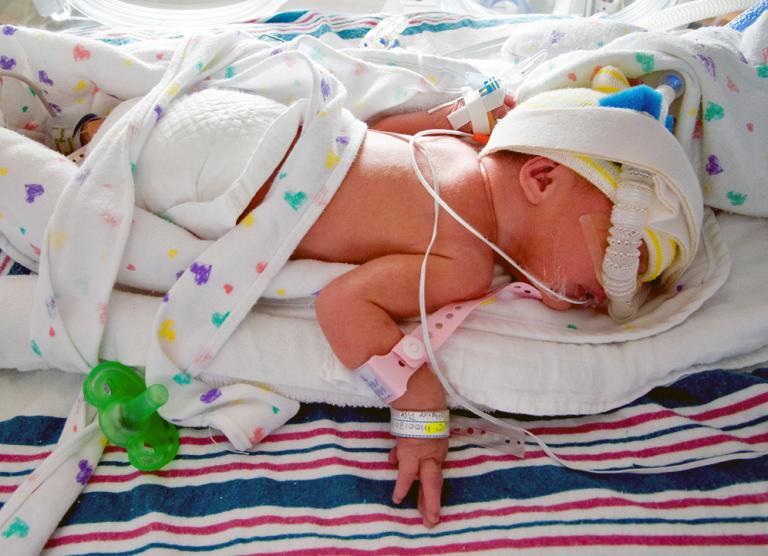Which came first: the chicken or the egg? (Apparently, the egg, insofar as we’ve learned that dinosaurs laid eggs which, bit-by-bit, became chickens. But that’s beside the point.)
Which came first: attitudes about unplanned pregnancy, or opinions on abortion?
There’s been a Twitter hashtag that the pro-life community has been trying to promote: #UnplannedParenthood — trying to push back on the idea that an unexpected pregnancy is a disaster for any woman in that situation.
The Atlantic isn’t pleased; they’ve titled their article on the subject, “The Bizarre Celebration of ‘Unplanned Parenthood’” and have this to say:
. . . the movement becomes disastrously illogical.
First, there is a big difference between an unplanned pregnancy and an unwanted one—and an even bigger gulf between a baby you actively choose to have and one you’re forced to carry because abortion is illegal.
Twitter hashtags aren’t exactly doctoral dissertations. Still, it’s odd how this one seems to celebrate unplanned pregnancy. Let’s recall that women have been desperate for effective birth control for centuries. During the Great Depression, women who wanted to avoid having babies they couldn’t afford used “disinfectant douches” that burned their genitals and didn’t do much to stop conception. The invention of the pill is partly credited with helping women expand their earning potential and achieve greater gender equality.
Today, reducing unexpected pregnancies is widely considered to be a major public-health imperative. The work of Isabel Sawhill and others has shown that high rates of unplanned births, particularly among poor and unwed mothers, contribute to poverty. When women are offered long-acting reversible contraceptives, like IUDs and implants, they overwhelmingly choose to get them inserted—and both unplanned births and abortions decrease as a result.
In other words, they’re accusing women posting under this hashtag of having trivial experiences of inconvenience, and failing to understand that women who get abortions had real hardships that pro-life women couldn’t possibly understand.
On the other hand, consider this post, from another Patheos writer, Calah Alexander, “All Parenthood is #UnplannedParenthood.” Some readers may think she’s a fool for being pregnant for the 5th time, and relying on NFP rather than an implant or putting the whole baby-making business to an end by getting her tubes tied, but read what she says:
I’ve kept going through four unplanned pregnancies. The first one happened when I was unwed and addicted to meth. The second and third happened in Vegas, when we were on welfare and thousands of miles from family. The fourth happened here in Florida, and brought crippling PPD in its wake. None of this was my plan for my life, and it sure wasn’t the Ogre’s plan for his. But all these unplanned pregnancies have filled our lives with crazy amounts of joy, too. Joy we could never have planned for ourselves. Yes, there’s also sadness, stress, fear, and frustration, but wouldn’t we have had those in spades anyway? At least this way, we have four little allies to cheer us up with their ridiculous antics, bizarre humor, snotty kisses, and unconditional love.
No one plans to spend their lives constantly working and still struggling to make ends meet, but most of us do that anyway. No one plans for unemployment, chronic illness, cancer, dementia, or death, but everyone faces them sooner or later. Even when our children come according to our plan, we can’t plan for autism, autoimmune diseases, asthma, or any of the zillion other things parents face every day. We can’t plan for how and when our children will experience bullying or heartbreak, nor can we protect them from it. Even our best-laid plans for parenthood usually get wrecked by something, and often by our kids themselves. That’s the thing about parenthood — the way it turns out is always unplanned.
So, no, women who have unplanned pregnancies but ultimately choose to carry them to term are not, as The Atlantic would have us believe, distinguished from women who get abortions, by simply not facing as many hardships. They simply believe that they don’t have the right, morally, to destroy the new life growing within them.
And that’s my chicken-and-egg question:
The pro-abortion lobby likes to claim that prolife people are really just anti-sex, and want to restrict abortion as a way of forcing people to refrain from having sex. This is preposterous and exactly backward — because it is true that, when you are prolife, it requires that you take sex more seriously.
But what about perspective of the pro-abortion/prochoice crowd? From everything I’ve read, they don’t make the decision that the unborn child is a nonperson, a la Peter Singer, and move on to sexual ethics from there. Instead, they start with the stipulation that people must be able to have sex without consequences, and reason from there to determine that, consequently, abortion must be permitted, and if abortion must be permitted, than the unborn child must be able to be killed, and a being that “can be killed” is a nonperson.
And that causes me to wonder:
is it just “sex without consequences”? Once one adopts the attitude that moral decisionmaking should be made to conform with a higher goal of not suffering from an unplanned pregnancy, how does that impact the degree to which you’re able to handle all the other unplanned things that happen in life? All the things that can go wrong with children. A spouse/partner or family member who doesn’t behave as you’d like. A job loss, or another sort of financial crisis?














